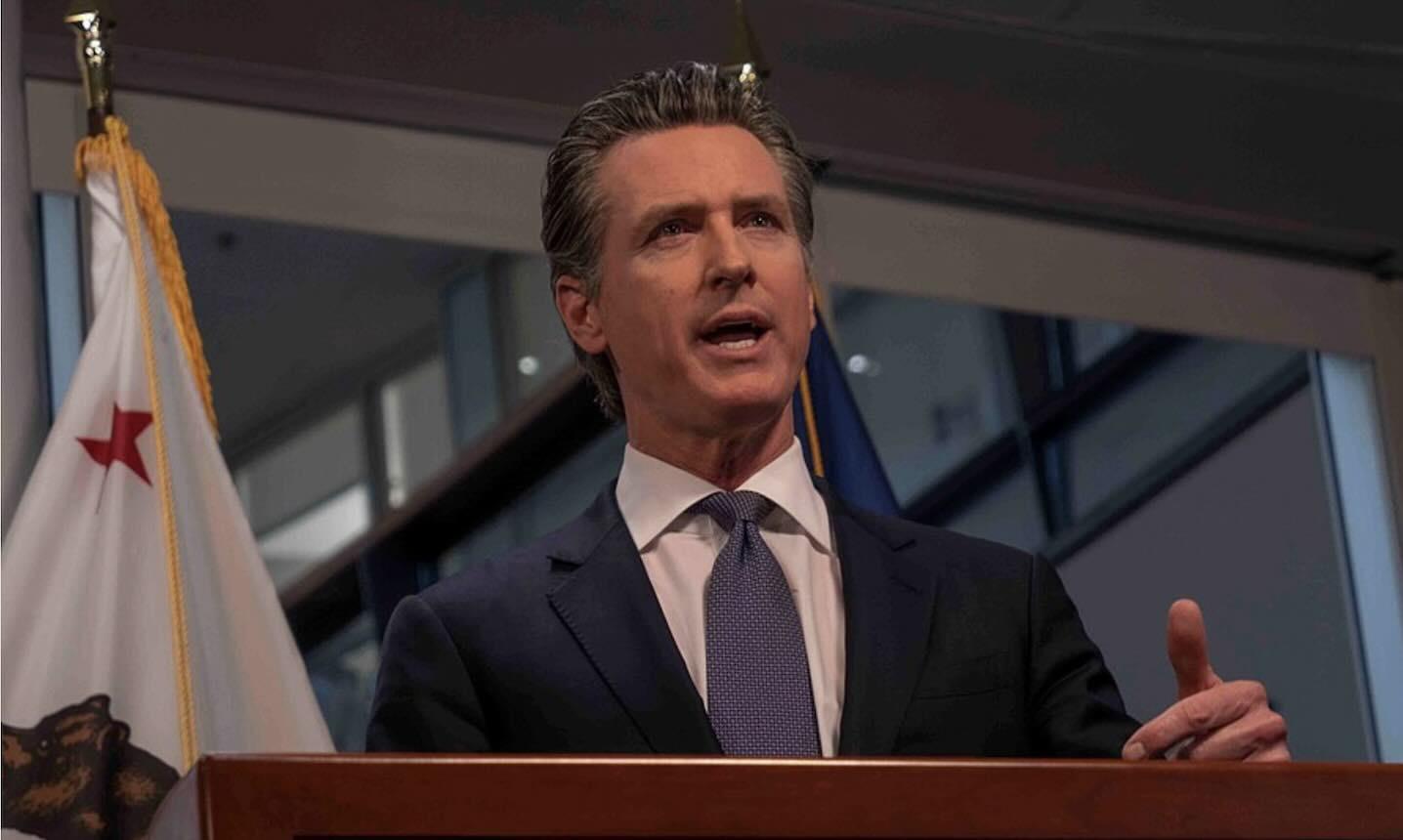A handy guide to the races ahead of June 5
For the last year, there has been significant media coverage on the 2018 midterm elections. Held every four years and two years after the general election, the midterm elections are typically seen as less exciting in the November elections, a point of view that generates historically low voter turnout.
However, following the election of President Donald Trump and the seismic shift in the country’s political and social climates, more people are looking at the 2018 midterm elections as a potential gamechanger.
California, in particular, is holding elections for a wide variety of the state’s constitutional positions and an open U.S. Senate seat and voters will head to the polls Tuesday, June 5 to choose the top two contenders in each of the races who will face off in the midterm election in November.
Here are the top contenders in the races to watch:
U.S. Senate
Dianne Feinstein, U.S. Senator, Democrat
Feinstein’s re-election campaign to run for a sixth term surprised many. Feinstein, 84, has been representing the Golden State in the Senate since 1992, and before that, she was mayor of San Francisco and a member of the Board of Supervisors. She has been one of the leading Democratic leaders in the Senate, authoring the famous 1994 Federal Assault Weapons Ban. However, recently Democrats have been vying for a replacement for her relaxing of Democratic values; although she supposed the Affordable Care Act, she denounces single-payer health care, a top priority among Democrats. In 2018, the California Democratic Party did not endorse any of the candidates, which many saw as a rebuke to Feinstein. Despite party backlash, Feinstein is leading in the polls and is expected to make it to the midterms.
Kevin de León, CA Senate President (Los Angeles), Democrat
De León is currently serving as a state senator for the eastern region of LA and serves as the Senate President. De León, 51, previously served in the state assembly and worked as a labor organizer for the California Teachers Association before that. His decision to run for the Senate stems from his belief that the state needs more progressive leadership and believes Feinstein’s actions have not reflected the state’s growingly diverse demographic. As the son of Guatemalan immigrants, de León has made immigrant rights a keystone during his political career and in his campaign. He authored the controversial sanctuary state law, SB 54, which prohibits state officials from aiding federal immigration agents with information about undocumented immigrants. He is currently trailing Feinstein in the polls and is expected to face off with her in November.
James P. Bradley, businessman, Republican
First-time candidate Bradley is a recently-registered Republican who said he registered in March after years of voting without a party preference. Believing the Democratic Party is becoming too progressive, Bradley, 60, has dedicated his “America First Reunite Platform” to fighting against de León’s sanctuary state bill, supporting Trump’s border wall and increasing the number of Immigration and Customs Enforcement (ICE) agents in the state. He is also a supporter of gun rights, proudly stating on his campaign website that he is a member of the National Rifle Association (NRA). Despite his Trumpian immigration stances, he supports granting citizenship for undocumented immigrants who have “delayed applications” and reuniting immigrant children whose parents were deported. Another contrast to his party’s values is that he supports climate change initiatives.
Governor
Rep. Travis Allen (Huntington Beach), Republican
Allen was elected to the State Assembly in 2012 and has welcomed Trump immigration policies: he supports the border wall, the limiting of family reunification programs and repealing California’s “sanctuary state” law; as a representative for the Huntington Beach area, he welcomed the lawsuit that the Justice Department filed against the state for the law. Allen, 44, advocates for lowering taxes, particularly the new gas and vehicle taxes, which Californians generally disfavor. As an outspoken conservative, he was widely criticized for lying about a California law that he claimed “legalized” child prostitution — the law he was referring to decriminalized minors who are prostitutes and instead allowed law enforcement officers treat them as sex trafficking victims rather than criminal offenders. Allen has an A+ rating with the NRA and vocally opposes gun control measures.
John Chiang, CA state treasurer, Democrat
Chiang was elected state treasurer in 2014 after serving two terms as the state controller. As controller, Chiang, 55, withheld state lawmakers’ pay for failing to come up with a balanced spending bill in 2011. The key issues of his platform include implementing policy to combat sexual harassment and assault, providing quality public education and increasing access to higher education and moving the state toward a single-payer health care system. As the son of Taiwanese immigrants, Chiang has spoken out against the Trump immigration policies during the campaign and vows to support the sanctuary state law and find legislative solutions to uplift the immigrant community.
John Cox, businessman, Republican
Though not a career politician, Cox, 62, has responded to the public’s general distaste for establishment politics with his campaign. But this isn’t the first time he’s run for office. In 2003, he ran for the U.S. Senate in Illinois only to lose against former President Barack Obama. Cox has largely self-funded his campaign, which largely represents Trump conservatism. He supports immigration reform, the border wall and the repeal of the sanctuary state law. (In several debates, he’s said, “Nobody wants to live next to an MS-13 gang member.) Cox is second in the polls, which could pit him against Newsom, who has a comfortable lead, in the November election.
Delaine Eastin, former California superintendent of public instruction, Democrat
Eastin’s career spans all the way to the 1980s. Before she was superintendent of public instruction — which she served from 1995 to 2003 — she served in the State Assembly from 1986 to 1994, even chairing the Education Committee. During her career, she has been an outspoken advocate for the state’s class-size reduction law, which posits that smaller classrooms provide a more quality K-12 education. As governor, it’s not a surprise that she’s made quality public education and affordable higher education a top priority of her gubernatorial campaign. In an early debate in 2018, she openly criticized Sacramento for its lack of funding in public education, claiming that the state spends more money on incarceration than on students, often referencing a 2017 Associated Press study that found California is ranked No. 1 in prison spending and a study from the California Budget and Policy Center found that the state is No. 41 in pupil spending.
Gavin Newsom, CA Lieutenant Governor, Democrat
Newsom has served as California’s lieutenant governor (second in command to the governor) since 2011. Before that, Newsom, 50, was Mayor of San Francisco from 2004 to 2011, when he made headlines when he ordered the city to issue marriage licenses to LGBT couples in San Francisco in the first year of his tenure. Newsom, 50, has proposed tougher gun laws in the state, supported the legalization of recreational marijuana and helped initiate the country’s first universal healthcare initiative. A vocal opponent of Trump, he has very openly criticized the president and touted a campaign that directly challenges the administration’s stance on immigrant rights, gun reform, LGBT rights and climate change policy. Newsom has been leading in the polls and is poised to take his campaign to the November elections.
Antonio Villaraigosa, former mayor of Los Angeles, Democrat
Villaraigosa served as LA mayor from 2005 to 2013 and before that, he was the speaker of the State Assembly from 1998 to 2000. As mayor during the national economic downturn, Villaraigosa, 65, fought for compromises from public employee unions that were needed because of raises that he sign off on before the 2008 recession. Crimes also decreased during his tenure when he significantly bolstered the LAPD with the hiring of new police officials. He campaigned for Measure R, a $35 billion transportation package that issued a half-cent sales tax across the LA County, which has reformed the failing public transit system.
Attorney General
Xavier Becerra, CA Attorney General, Democrat
Becerra became the first Latino attorney general when he was appointed by Gov. Jerry Brown in 2017 to take over former AG Kamala Harris who was elected to the U.S. Senate. As attorney general, Becerra, 60, has represented California in several challenges against the Trump administration in defending the Affordable Care Act and the Deferred Action for Childhood Arrivals (DACA) in court and has stood by SB 54 and promised to uphold sanctuary state policies in the event of any massive ICE raids. Before he was attorney general, he had a rich career as an aggressive lawmaker stateside and on the federal level. He first served in the California State Assembly from 1992 and served as U.S. representative for three different congressional districts from 1993 to 2017.
Dave Jones, CA Insurance Commissioner, Democrat
Jones has served as CA insurance commissioner since 2011 after serving as a Sacramento city councilor from 1999 to 2004 and state assemblymember from 2004 to 2010. As insurance commissioner, he has backed legislation that protects policyholders who have suffered natural disasters. With a background in law, Jones has criticized Becerra’s politicizing of the attorney general’s office. Last month, Jones filed a lawsuit against Becerra for filming a campaign video in a courtroom in the historic Stanley Mosk State Library and Courts building in Sacramento, a move Jones found “unlawful” and “misleading” given Becerra’s “inactive status with the State Bar of California for 26 years before being appointed Attorney General.”
For the Republican ticket, declared candidates include Steven Bailey, retired El Dorado County Superior Court Judge, and Eric Early, managing partner of Early Sullivan Wright Gizer & McRae LLP.
Lieutenant Governor
Like the race for governor, the top two vote-getters for lieutenant governor in the June 5 primary will appear on the general election ballot in November. Term limits prevent current Lt. Gov Gavin Newsom — who was first elected to the office in 2010 and was re-elected in 2014 — from running for a third term; he, however, is running for governor. There are 11 candidates for the state’s second-highest position who serves as the president of the state Senate, a regent for the University of California system, and on the board of trustees for the California State University system.
According to a YouGov poll in May, Democratic candidate Eleni Kounalakis polled at 14 percent of likely voters, Republican Cole Harris at 16 percent, and 41 percent of people were undecided.
Kounalakis is a former ambassador to Hungary, a senior advisor for the Albright Stoneridge Group, and former fundraiser/foreign policy advisor during Hillary Clinton’s 2016 presidential run. Her priorities include affordable housing, health care reform, and lowering cost of UC and CSUs. Harris is a businessman whose top priorities include spending, jobs and the economy, and affordable housing. Other candidates for this post include state Senator Ed Hernandez (D), former U.S. Ambassador to Australia Jeff Bleich (D), and venture capitalist David Fennell (R).
Secretary of State
The secretary of state is considered the chief clerk of California overseeing a department of 500 people, all federal and state elections in the state, and maintaining a database of registered voters. The incumbent, Alex Padilla, is among the candidates running. His accomplishments include sponsoring legislation that automatically registers eligible voters when they get or renew a driver’s license. Others include Ruben Major (D), Mark Meuser (R), Raul Rodriguez Jr. (R), and Michael Feinstein (Green Party) and Erik Rydberg (Green Party).
State Controller
This position acts as the chief financial officer of the state, with responsibilities that include exerting investigative authority for every dollar spent by the state and being an ex-officio member of the state’s Board of Equalization. The state controller is elected to a four-year term but is limited to two terms.
Incumbent Betty Yee (D) is running again after being elected in 2015. Her priorities include addressing the state’s gig economy and the effects of climate change on the economy. Konstantinos Roditis, an entrepreneur, is running on the Republican ticket and is seeking to audit and cut funding on government projects and implemented a tax plan called “trickle-up-taxation.”
State Treasurer
The state treasurer is responsible for the state’s investment and finance with responsibilities like issuing bonds and notes for the state, and trustee, registrar and paying agent for all general obligation bonds and certain revenue bonds investment of temporarily idle state money. Current incumbent John Chiang is running for governor.
Among the candidates for this race include Fiona Ma (D), chairwoman of the California State Board of Equalization;Vivek Viswanathan (D), former Special Advisor to Gov. Jerry Brown and Policy Advisor to Hillary Clinton’s 2016 presidential campaign; Jack M. Guerrero (R), a CPA, Cudahy city councilmember, and economist; and Greg Conlon (R), a businessman and CPA. Ma’s priorities include promoting good corporate governance and combatting the underground economy to ensure fair tax paying, while Guerrero is seeking pension reform and improving the state’s credit ratings.
Insurance Commissioner
The officeholder is in charge of the California Department of Insurance, with duties that include licensing and regulating insurance companies and enforcing laws of the California Insurance Code. Incumbent Democratic Commissioner Dave Jones is term-limited and cannot seek re-election to a third term.
Candidates include state Senator Ricardo Lara (D), pulmonologist Asif Mahmood (D), and Steve Poizner (no party), a former California Insurance Commissioner.
For specific races on your ballot — such those for the House of Representatives, state Senate and Assembly, and city-specific measures — you can visit http://votersedge.org/ca for further information. (With reports by Christina M. Oriel / AJPress)







